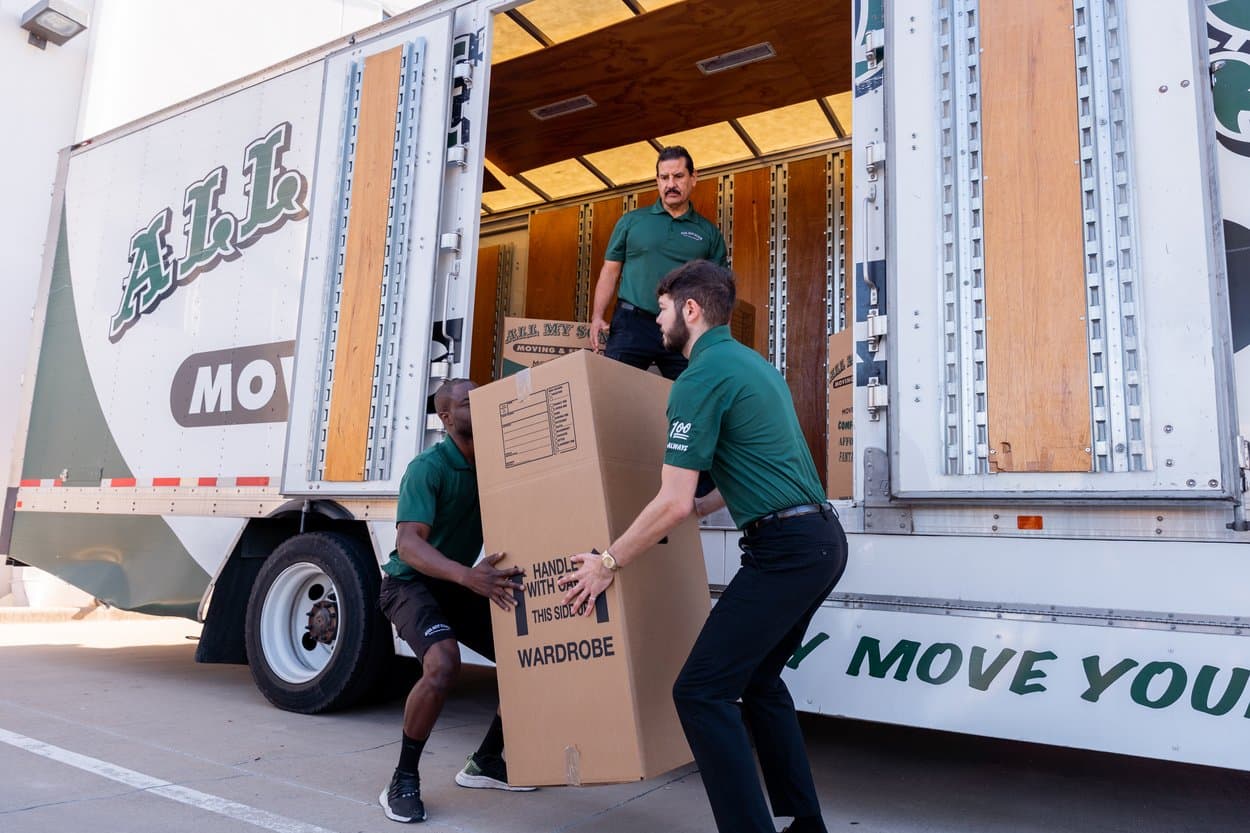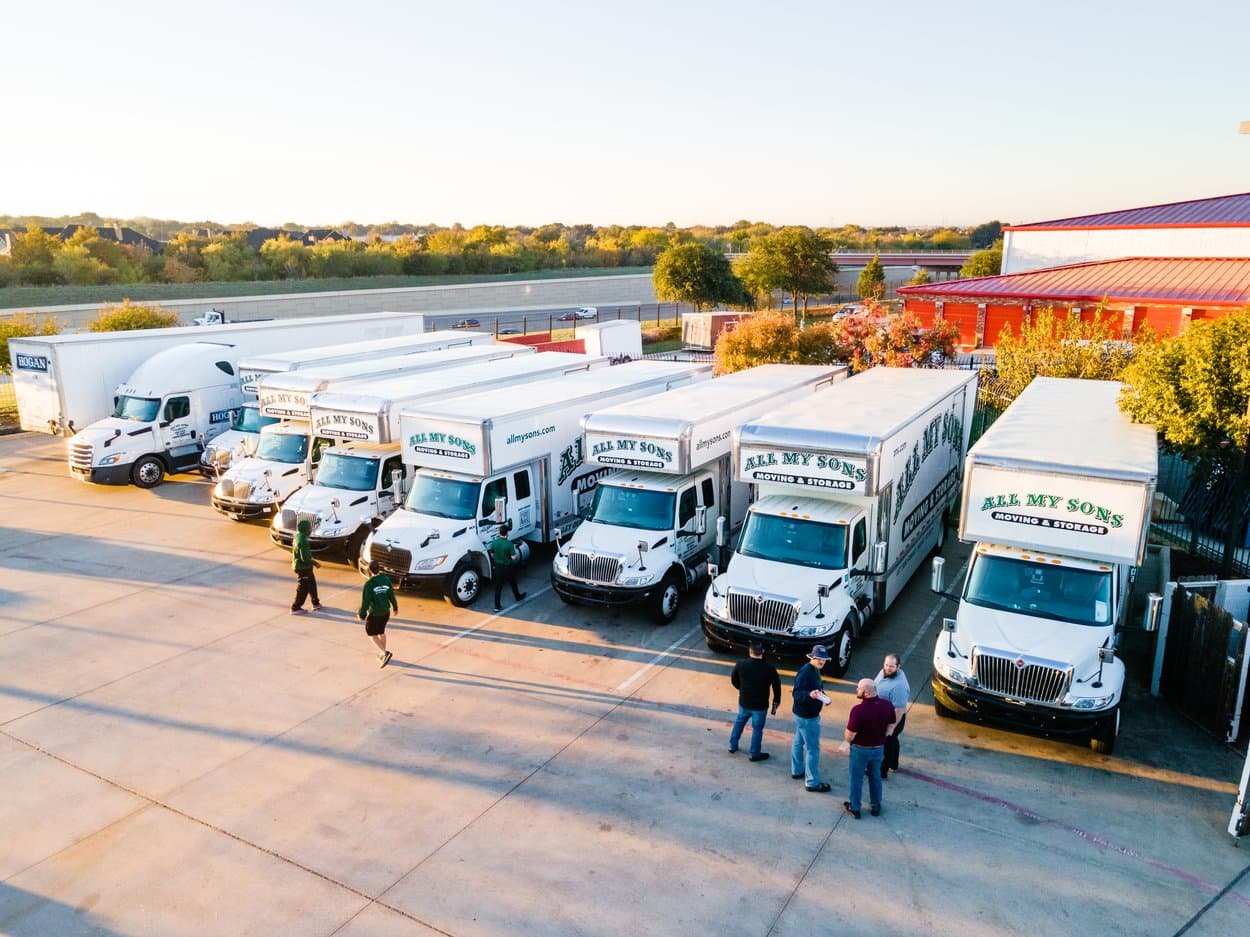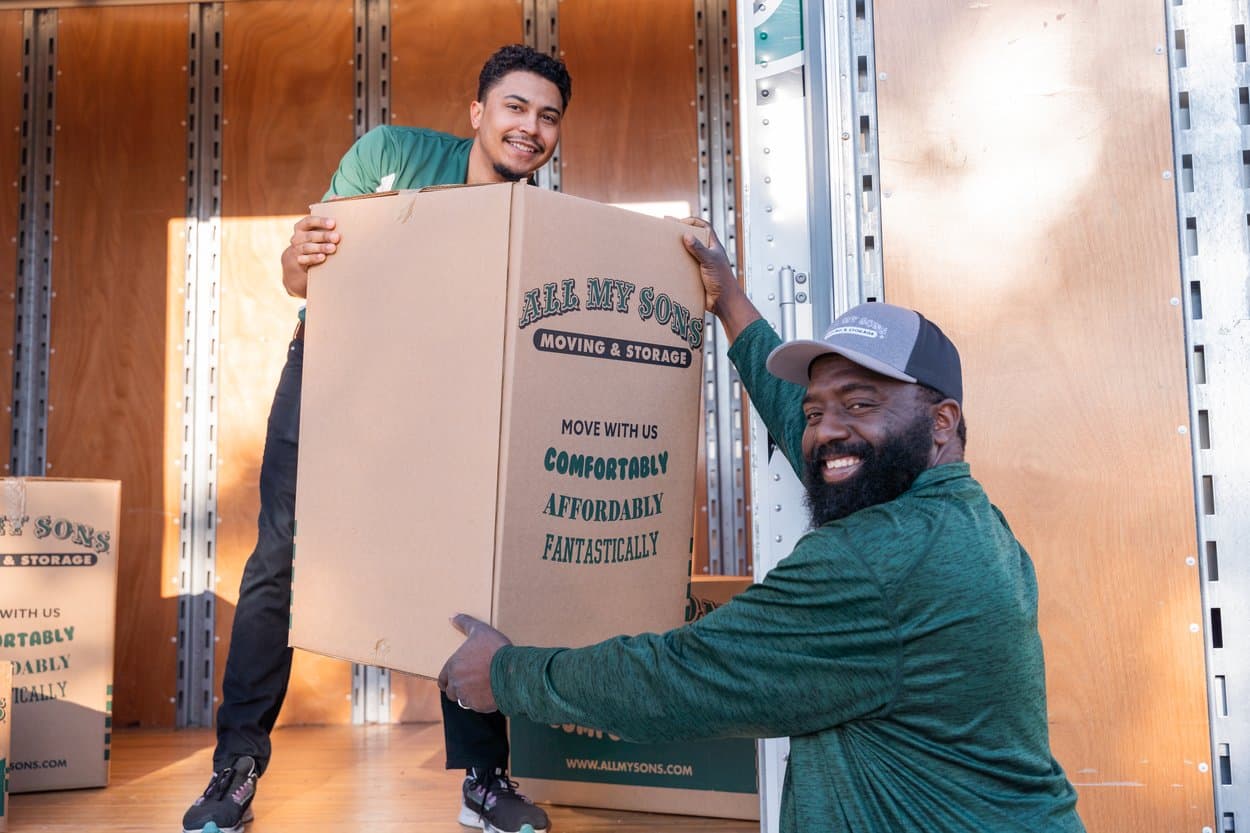Welcome to Your Storage Unit
Wondering about storage restrictions? All My Sons Moving & Storage answers what you can and should not put in a storage unit.
You’ve carefully considered your options, asked yourself the important questions, and now have decided to store your belongings. When you’ve officially decided on a unit to rent, be sure to look at your facility’s rules and regulations. Each storage company and local state government will have its own guidelines for what you can put into your storage unit, but there are some legal rules that will be almost universal across companies and the United States.
All My Sons Moving & Storage has been helping businesses and families make a smooth relocation for almost 30 years, and we understand the business of storage well. We’ve compiled this list to give you the Dos and Don’ts of what you can put in your storage unit.
You Can Store
The items on this list are generally safe to store, though depending on what the item is you might want to take extra precautions to ensure the item remains undamaged during its time in storage.
Furniture
Couches, bed frames, mattresses, and dressers can go into your storage unit. Measure your furniture to ensure you have enough space in your unit for your pieces. Disassemble any large pieces of furniture and make sure they are clean and dry before you put them into storage. Mattresses should go in mattress bags prior to entering storage and your other soft-surface furniture should be wrapped in breathable furniture blankets to protect them from dirt and moisture.
Home Décor
Pictures, mirrors, wall hangings, artificial plants, and most other décor items are safe to store. Tape a large “X” on glass and mirrors to prevent breakage. In the event the glass does break this will also keep the pieces from scattering. Smaller décor items should go in labeled bins or boxes to help keep you organized when you’re looking for items later.
Retail Inventory
Storing your inventory for your small business or eCommerce store is one great way to utilize your storage unit. Take a full inventory of what you have in your unit and then organize it efficiently so that you can access items you need quickly.
Electronics
Computers, televisions sets, and monitors should go back to their original packaging if available. Dust your electronics before you put them into their boxes and remove any batteries. Electronics should probably be stored in temperature-controlled units as extreme shifts in temperature can cause damage to the internal components of your electronics.
Gym Equipment
Treadmills, ellipticals, weights, and smaller gym items like resistance bands or yoga mats can safely go in your storage unit. These items will probably be fine in a drive-up or standard unit but remember to check them often to look for signs of rust or pests.
Holiday Decorations
Your artificial Christmas tree, seasonal lights, ornaments, and other decorations are good to put in your storage unit. Place smaller items in labeled boxes so you can easily find what you’re looking for when you visit your storage unit.
Appliances
As long as the items are clean, dry, and unplugged, your appliances such as your fridge, freezer, microwave, washer, or dryer can go into storage. Tape doors and drawers shut during transit and store your appliances upright in your unit.
Clothing
Clothing should be washed and dried prior to putting it into storage. You should store your clothing in plastic bins or wardrobe boxes. Cedar chips, a more natural alternative to mothballs, can be used to ward off insects that might find their way into your unit and damage your clothes.
Toys
Toys like action figures, stuffed animals, and dolls can go into your storage unit. Batteries should be removed from any electronic toys prior to storing them. Use tightly sealed plastic bins to store smaller toys and wrap any fragile toys in bubble wrap to protect them.
Office Supplies
Most office supplies like desks, chairs, and even some specialized equipment can go into your storage unit safely. Ink cartridges should be removed from printers prior to putting them in your storage unit, but unopened cartridges should be fine to store in a temperature-controlled unit.
Camping Equipment
Tents, kayaks, backpacks, sleeping bags, hiking boots, and camp kitchenware are safe to store. Make sure everything you store is clean and dry before you put it into storage.
Landscaping Equipment
Lawnmowers, leaf blowers, rakes, and shovels can be stored in a storage unit. Before you store any lawn equipment, clean the piece thoroughly and drain any gas or other fuel.
Files
Storage units are a great place to store business documents you need to keep on hand but don’t need to use daily. Come up with an effective system for organizing your documents so you can easily navigate to what you need in your storage unit.
Books
You can leave hardback and paperback books in cardboard boxes or plastic bins. Paper is somewhat sensitive to temperature changes, so investing in a temperature-controlled unit is in your best interest.
Media Collections
Photo albums, DVDs, CDs, and vinyl records can be put into a storage unit. Investing in a temperature-controlled unit can help ensure your physical media collections do not get damaged by extreme temperatures.
You Should Not Store
The items on this list are either not safe to store or illegal to store in most states. If you have some of these items in your household inventory, you should seek alternative options for storing them, or properly disposing of them.
Valuable Jewelry
Something of extreme monetary worth should not be put in a storage unit. These items would be safer in a bank vault or safety deposit box.
Fine Art
As a general rule, if something is irreplaceable it should not be put into a storage unit. Expensive fine art, if it’s one-of-a-kind, would be safer in a bank vault.
Cash
Money, even coin collections, should be kept out of your storage unit. These items are safer and better insured when stored with a bank in a safety deposit box or vault.
Important Documents
Your passport, social security card, or birth certificate should always be in a location accessible to you. Not in a storage unit.
Stolen or Illegal Goods
If you should not have it to begin with then you can’t put it in a storage unit. Legally, storage facilities must comply with law enforcement and if they suspect something illegal is happening in their facility, they are required to call the police.
Toxic Chemicals
Storing any kind of liquid is not recommended, but toxic chemicals are often illegal to store in a storage unit. This includes paint thinner, bleach, ammonia, nail polish remover, and acids.
Fireworks
Combustible items are a serious liability in storage facilities. If something were to happen then the entire facility, and possibly hundreds of other people’s belongings, would be at risk.
Firearms
Weapons you own should be kept with you, not in a storage unit. While local regulations vary, it’s generally not a good idea to keep firearms in a storage unit. Besides safety issues, they can cause legal issues if your unit should default and go to auction.
Ammunition
Ammunition is considered an explosive, and a major liability for storage facilities. Due to safety issues, they are not allowed in most storage facilities.
Cremated Ashes
Stashing the remains of your dearly departed loved one or pet in a storage unit is seriously disrespectful of their memory. As a general rule, you should never put something irreplaceable in a storage unit, and your loved one’s urn falls firmly in that category.
Gas
Highly flammable liquids like gas or oil are not allowed in storage units. One stray spark and your unit could catch fire or explode, damaging hundreds of goods and the facility itself.
Plants
Houseplants are magnets for mildew and pests, not to mention they need sunlight and water to thrive, and they will not be getting that in your storage unit.
Animals
Living or dead, animals should not be kept in storage units. Even if you have a tank-bound pet, they should be where you can access and feed them at all times.
Food
Perishable food left in a storage unit will spoil and attract pests like bugs and rodents. Non-perishable foods or canned food can still produce mold or mildew.
Yourself
While the skyrocketing cost of housing might make sleeping in your storage unit look like a tantalizing option, living in a storage unit is both unsafe and illegal in all 50 states.
Storage units do not have good ventilation, running water, or electricity for heating and cooking. With security for most storage facilities on site, you will likely be caught.
Ready to Move Your Items into Storage
Now that you have a comprehensive list of what is and what is not allowed in a storage unit, get ready to move your belongings into your storage unit with confidence. While there are many prohibited items, there are countless more that are safe to put into storage. Whether you need somewhere to put your things during a brief transition period or want a long-term solution, renting a storage unit could be a great option for you.
When you’re ready to make your move, ask All My Sons Moving & Storage about our storage facilities to see if there’s a viable solution for your move. We offer enhanced security in the form of controlled access and state-of-the-art surveillance. Choose to rent a temperature-controlled unit and never fear extreme summer heat or winter chill. To talk to a moving specialist about your move call your local All My Sons Moving & Storage location or get started with an online quote.
Quick Moving Tips

How to Pack Clothes for a Move
All My Sons Moving & Storage provides professional packing services and has some special tips for packing your clothing for moving.

How to Make a Seamless Business Move
Tips for pulling off your business move from the experts in commercial moving services at All My Sons Moving & Storage.

How to Pack a Computer for a Move
Here are 5 steps that should help you get your computer secured for the move.


